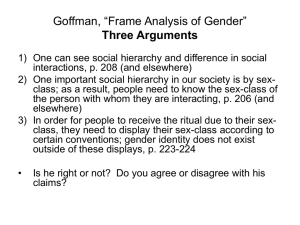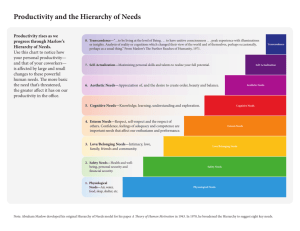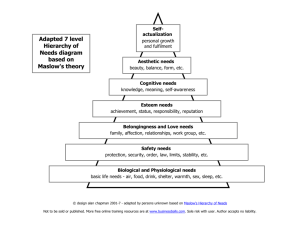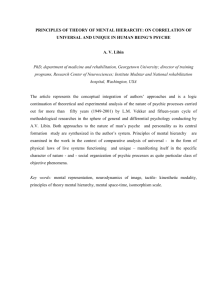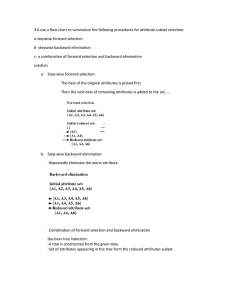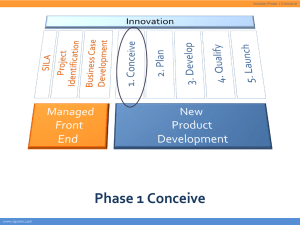Quiz Maker
advertisement
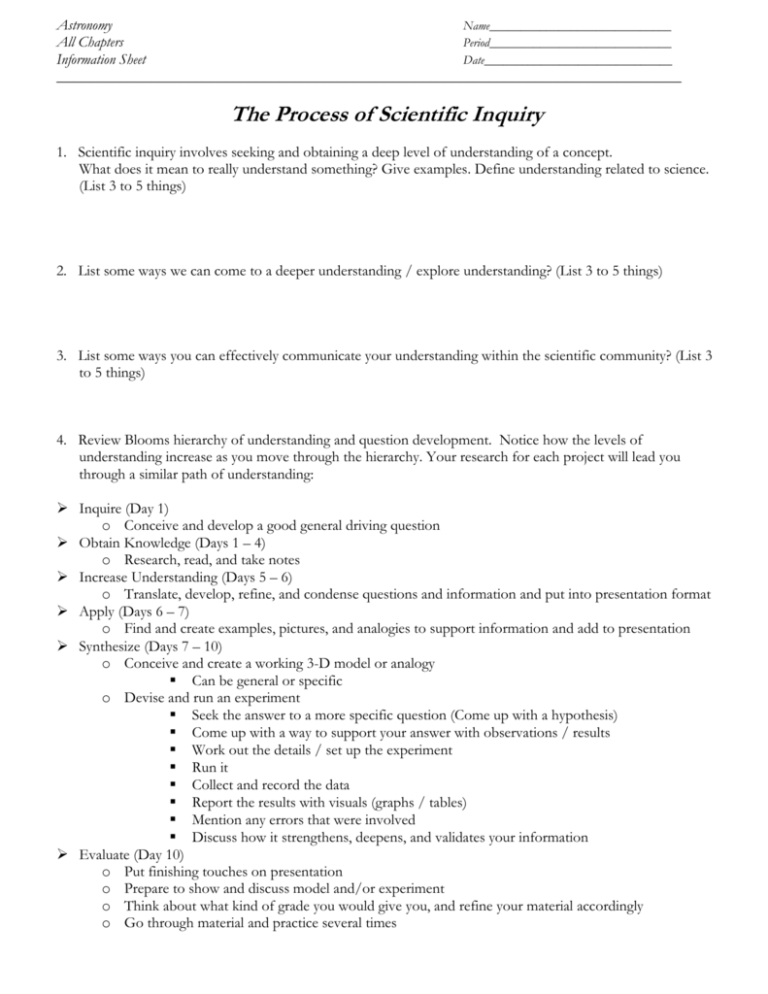
Astronomy Name_____________________________ All Chapters Period_____________________________ Information Sheet Date______________________________ ___________________________________________________________________________________ The Process of Scientific Inquiry 1. Scientific inquiry involves seeking and obtaining a deep level of understanding of a concept. What does it mean to really understand something? Give examples. Define understanding related to science. (List 3 to 5 things) 2. List some ways we can come to a deeper understanding / explore understanding? (List 3 to 5 things) 3. List some ways you can effectively communicate your understanding within the scientific community? (List 3 to 5 things) 4. Review Blooms hierarchy of understanding and question development. Notice how the levels of understanding increase as you move through the hierarchy. Your research for each project will lead you through a similar path of understanding: Inquire (Day 1) o Conceive and develop a good general driving question Obtain Knowledge (Days 1 – 4) o Research, read, and take notes Increase Understanding (Days 5 – 6) o Translate, develop, refine, and condense questions and information and put into presentation format Apply (Days 6 – 7) o Find and create examples, pictures, and analogies to support information and add to presentation Synthesize (Days 7 – 10) o Conceive and create a working 3-D model or analogy Can be general or specific o Devise and run an experiment Seek the answer to a more specific question (Come up with a hypothesis) Come up with a way to support your answer with observations / results Work out the details / set up the experiment Run it Collect and record the data Report the results with visuals (graphs / tables) Mention any errors that were involved Discuss how it strengthens, deepens, and validates your information Evaluate (Day 10) o Put finishing touches on presentation o Prepare to show and discuss model and/or experiment o Think about what kind of grade you would give you, and refine your material accordingly o Go through material and practice several times 5. Notice how the questions increase in complexity as you move through the hierarchy. Your questions will naturally develop in this way as you go through your project (from more general, to more developed, specific, and complex). Come up with, and write in the space below, an example astronomy question for each level of Bloom’s hierarchy of understanding. Expectations for Presentations Question driven? Opening (what we’re going to talk about), Closing (what we just talked about), and smooth transitions between topics? Numerous, well-explained visuals (diagrams, pictures, tables, graphs, etc.), real world examples, analogies? Slides o Consistent (consistent fonts, titles, or backgrounds)? o Readable (large fonts and readable colors)? o Concise (just the boiled down bullet points…not too wordy!)? Models and experiments well-explained and presented completely with interest and confidence Presentation style o Good volume? o Clarity (correct and confident pronunciations)? o Eye contact (talking to us, not reading at us)? o Dynamics (sense of humor, voice volume and inflection changes, active and engaging body language)? o Audience engagement (physical / active involvement of the audience)?
